“Laws are like sausages, it is better not to see them being made.”
–Otto von Bismarck
Based on some of my and my wife Dara’s recent experiences, I would add two more items to Bismarck’s list: journalism and voting procedures.
Most of us regularly consume the end products of both journalism and elections and give very little thought to how these end products are made. We assume (both out of convenience and a desire to coddle our mental health) that these products, like sausages, are made in a hygienic, properly regulated fashion by well-trained technicians who take care not to allow germs or foreign matter to get in the mix.
We shouldn’t assume such things.
For years now, I’ve read and heard complaints that the bulk of mainstream print and broadcast news media (CBS, NBC, ABC, PBS, CNN, The New York Times, The Washington Post, to name the major players) slant their coverage to provide support for liberal/left/progressive causes, political candidates, and points of view. For a consumer of media news, most often very distant from the events and persons being covered, it can be very difficult to judge the validity of such complaints. One can try to “balance” one’s news consumption by making a point of paying attention to reports from media which represent themselves as being on the more conservative side of the political spectrum (Fox News, conservative talk radio, various conservative or libertarian blogs), but then one is faced with another, symmetrical problem, that of potential (or explicit) bias coming from the opposite pole. One can’t simply assume that the “truth” lies at the midpoint between the left-leaning, mainstream news media and the right-leaning alternative news media. Just as a broken clock is right twice each day, so the possibility exists that one or the other of the “wings” of the news media has gotten a story right, despite the journalist’s or commentator’s biases.
One is on somewhat firmer ground in attempting to ascertain the validity of claims of bias in news reporting when it comes to observing which stories receive any coverage at all. For deciding which events “deserve” coverage is just as powerful (if not more powerful) a tool as deciding how to report on an event, if one’s goal is influencing public knowledge and public opinion to bend in a preferred direction. Ignorance of an event or development can be just as much a controlling factor in establishing a baseline of public opinion as slanted reportage of an event. For a consumer of news reportage, an outside observer, this form of bias is easier to spot. Did one “wing” of the news media cover a particular event and the other “wing” ignore or mostly ignore it? An outside observer can ascertain this without much difficulty. Did the story or event which one “wing” failed to cover have objective newsworthiness? Would a reasonable person decide that the story or event could have a significant impact on the safety, economic well-being, or social or political interests of members of the public? If the answer is yes, and yet the story or event was ignored by one “wing” of the news media, then an observer is on solid ground in wondering why the story was ignored. Whose interests are being served? (For an instructive case history of this phenomenon in action, Google “Benghazi” “embassy” “terrorists” for the period October 26, 2012 through October 29, 2012 and see which news sources pop up… and which do not.)
But one is on the firmest ground of all in detecting media bias when one finds oneself (or one’s close confidents) in the middle of a newsworthy event. Then one is no longer an outsider observer trying to peer through the sausage factory’s tinted windows… being inside the factory itself, one enjoys the dubious pleasure of watching the sausage get made.
My wife, Dara L. Fox, served as a volunteer poll watcher for the Republican Party at a voting location in Woodbridge, Virginia, part of Prince William County in Northern Virginia, on November 6, 2012. She personally witnessed numerous incidents of either explicit or likely voter fraud during the fourteen hours she spent at the polling location; all of these incidents were overlooked, excused, or in some cases abetted by the paid poll workers. (I provide Dara’s own detailed account of these incidents later on in this article.) Under the rules by which she was required to operate as a volunteer poll watcher, she was forbidden to speak to any of the voters who engaged in questionable activities. She made numerous calls to the Romney campaign’s lawyers, but by the time those lawyers arrived at her location, the individuals she had called about had departed, and the overcrowding and barely-controlled chaos of the polling place precluded the lawyers from doing much questioning or observing themselves.
Dara arrived home greatly upset by what she had witnessed. I encouraged her to write it all down, sticking only to what she personally saw. I suggested that she mail and email her observations to the state’s Attorney General and the State Board of Elections, as well as to local media. The Attorney General’s office responded that Attorney General Ken Cuccinelli had no jurisdiction in the matter and suggested that she send her complaint to the State Board of Elections. The State Board of Elections responded that they could take no action unless they received a request from the Prince William County Board of Elections; so Dara then emailed her statement to that local body. Meanwhile, the hosts of WMAL-FM’s morning show invited her to phone in as a guest. Several weeks passed with no response received from the Prince William County Board of Elections, until, just today, following more coverage of potential voting fraud in Virginia on WMAL-FM, a representative from the county board emailed Dara, claimed that the board’s email system had been experiencing “troubles,” and asked her to resend her statement to a different address. The county board also invited her to speak at an upcoming meeting.
Between Dara’s interview on WMAL a few days after the election and now, other poll watchers have come forward to report their own experiences witnessing questionable activities and potential incidents of fraud at Virginia voting stations. To their credit, the hosts of WMAL’s morning show have stayed on top of the story. Recently, they invited Virginia Attorney General Ken Cuccinelli to appear as a guest, and they read to him on-air the incidents of alleged voter fraud which their listeners had emailed to them. Cuccinelli, who is running on the Republican ticket for governor, expressed his own frustration that his office lacks standing to investigate complaints of voting fraud.
Have any representatives of the prominent mainstream news media touched this story? Yes, they have. Thus far, editors, reporters, or bloggers employed by The New York Times, The Washington Post, and The Huffington Post have reported on this story. Did these renowned purveyors of investigative journalism bother to, you know, investigate the numerous allegations of widespread voter fraud in Virginia, the sources of said allegations all being readily identifiable due to their having spoken on WMAL? No, not as of this date, they haven’t. So, if they haven’t attempted to verify the truth of the fraud allegations, which elements of this story have they exclusively focused on? What else is more newsworthy?
Wait for it…
The fact that WMAL has dared to cover allegations of voter fraud, thus joining what The New York Times refers to as “the voter fraud fringe,” is the story according to these three mainstream news outlets. That, and the possibility that Ken Cuccinelli may agree with one of WMAL’s morning show’s hosts that voter fraud in Virginia helped get President Obama reelected.
From Andrew Rosenthal, editor of The New York Times’ Editorial Pages, comes a blog post dated 11/27/12 entitled “Life on the Voter Fraud Fringe.” Here’s a taste:
The only “problems on election day which need to be addressed” are the broken machines, inadequate polling stations and outrageously long lines. …
In this election, like in the elections before it, there is absolutely no evidence that people were trying to vote when they had no right to. …
This all goes without saying that Mr. Obama trounced Mitt Romney in the electoral college and won the popular vote. His victory had nothing to do with voter ID requirements, except perhaps that in some places he might have done better if the Republicans had not managed to put in place ID requirements that were designed to suppress minority votes and, therefore, Democratic votes.
Uh, Andrew… before you so unequivocally state “there is absolutely no evidence that people were trying to vote when they had no right to,” might I suggest that you direct some of your coworkers, those individuals colorfully described as “investigative reporters,” to spend fifteen minutes speaking with my wife?
And what about The Washington Post, the major newspaper in whose backyard these incidents of voter fraud allegedly took place? Aren’t they famed worldwide for having tenaciously dug into a little matter from back about 1973-74 called Watergate? Don’t they have a deserved reputation for excellence in investigative journalism? What was Virginia Politics reporter Laura Vozzella’s take on the story? Here’s a clue: her article is entitled “Cuccinelli Seems to Agree Voter Fraud Helped Obama.” Published the same day as Andrew Rosenthal’s opinion piece, it essentially mirrors Rosenthal’s view, while providing a bit more in the way of background on the exchange between WMAL’s morning show hosts and Ken Cuccinelli:
The exchange, first reported by the Virginian-Pilot, prompted the state Democratic Party to accuse Cuccinelli of spreading “voter fraud conspiracy theories.” …
Brian J. Gottstein, Cuccinelli’s communications director, said Cuccinelli was not suggesting that the election had been stolen, but merely echoing the hosts’ frustrations with his inability to launch voter fraud investigations. Gottstein called controversy over the comments — they were picked up by news outlets ranging from The Huffington Post and a New York Times blog — “made-up news.” …
“Reading these emails, you just get furious about what happened on Election Day in some precincts,” [WMAL morning show host Brian] Wilson said. “Look, something went on in some precincts that wasn’t copacetic. It wasn’t right. And it’s frustrating to hear you, the top law enforcement officer the commonwealth of Virginia, to say, ‘I’m sorry, my hands are tied.’”
Cuccinelli: “And they are.”
Gottstein said Cuccinelli was only responding to the hosts’ frustrations about his inability to launch election fraud cases on his own.
“The two WMAL radio hosts brought up example after example of alleged voter fraud issues surrounding election day and, frustrated, asked the attorney general over and over again why he couldn’t conduct investigations into many of them,” Gottstein said via email. “After six minutes of listening to these examples, the attorney general said, ‘Your tone suggests you’re a little upset with me. You’re preaching to the choir. I’m with you completely.’ When you listen to the whole eight-minute interview and not just a 20-second clip of it, it’s obvious he was referring to his frustration and the hosts’ frustration that his hands were tied in most of the incidences because Virginia law doesn’t allow him to open investigations into election irregularities on his own. The full context of the interview shows it’s clear he was referring to the bevy of irregularities the hosts cited, NOT just to Ms. Jacobus’s one claim about the president, which is what the media has focused on today.”
Paige Lavender of The Huffington Post, getting to the story the day following Rosenthal’s and Vozzella’s pieces, echoes their earlier takes, sexing it up a bit with the title, “Ken Cuccinelli, Virginia Attorney General, Agrees With Conspiracy Theory On Obama Win.”
And thus, for those news consumers who haven’t listened to Dara’s interview on WMAL or that station’s subsequent follow-up stories interviewing other witnesses to potential voter fraud, the story in Northern Virginia becomes, not that widespread voting fraud may exist in Virginia and may have influenced the recent elections (and may influence future elections), but that right-wing talk show hosts are encouraging a “voter fraud fringe” made up of “voter fraud truthers” and that Republican Attorney General Ken Cuccinelli may be pushing a conspiracy theory (rather than bemoaning the fact that his office has no jurisdiction over voting fraud).
Hey, editors and reporters at respected, widely-read or viewed news outlets (particularly those of you at The Washington Post, who, I shouldn’t have to remind you, cover news and politics in Northern Virginia)? I realize that you all are seriously overworked, what with staff cutbacks and whatnot. So I’m going to make things as easy as possible for you. Below is my wife’s statement of what she saw at the Woodbridge, Virginia polling station on November 6, 2012. Read it. You may have questions. Feel free to address those questions to her directly. You may contact her through the links I provide on my Contact Me page. She is more than happy to speak out about what she saw.
To Whom It May Concern:
I served as a volunteer poll watcher for the Romney campaign under the Project ORCA operation on Tuesday, November 6, 2012. As a poll watcher, I saw many suspicious things that led me to believe that voter fraud was rampant and went unstopped during the day, causing Gov. Romney and the Republican candidates to lose the election. I served along with three other Project ORCA volunteers and two Democrat poll watchers at the Elks Lodge at 14602 Minnieville Rd., Woodbridge, VA 22193. One of the other Project ORCA poll watchers was named Laura Lovelace, and she and I discussed many of these observations throughout the day; and I believe she would confirm that what I saw was also what she saw. I would be willing to testify under oath and in any legitimate forum on what I saw and believe to have happened.
I arrived at the polling place at approximately 5:40 a.m. I went into the polling place and showed my credentials to the Chief who showed me where to sit behind the poll workers who would be checking voters in to receive a voting certificate. All of the poll workers were either African American or Hispanic, with the only Caucasians being the Project ORCA watchers. The voters waited in a long line that went outside the building at all times during the day. At one point, probably around 11:00 a.m., I noted that the line was about 300 people long. The line did not break at any time during the day, and there was no time to take a break during the entire day from 6:00 a.m. until the final person voted at close to 8:00 p.m.
Throughout the day, I took note of many irregularities besides the abnormally long lines. The poll workers who regularly work the elections said that they had never seen turnout like what was present. I believe the lead worker said about three times as many people as usual turned out that day to vote and that it is usually a quiet, slow precinct. There were three parts to the voting process. First the voter waited in line to get to the point where I was standing and watching, which was the voter check in, where ID was checked and verified and voting certificates were given out to qualified voters. After receiving a voting card, the voters then stood in line to cast their votes at one of five voting machines. After voting, the voters stood in line to turn in their voting card. Each phase of the line was long and the lines all snaked around at all times.
I was only able to observe the check in phase. As people approached the station of four poll workers who were checking voters in, the voters presented one of the required forms of ID to the poll worker. The poll worker then stated the voter’s name, found them on the database, and then asked for the voter to state his/her name and address. Many, many people were unable to state their names and addresses without assistance. Many, many people said the name was incorrect on their ID due to them getting married or divorced. Many, many people said that the address on their IDs were incorrect due to them having moved recently. Many could not state either the address on their ID or their current address. Many, many people could not speak English and could not follow the directions of “state your name and address.” On the app from which I was checking names, the voter’s name and age appeared. Many, many times, I did not believe that the voter was the age stated on the app. Many, many times, when I went to check off the voter as having voted, the voter was already checked off as having voted. Several times, I would swear that I saw the same person voting twice or heard the same name voting twice, when the app stated that only one voter in the precinct had the stated name. Many times I saw a person who looked Hispanic answer to a name that he or she could barely pronounce that was obviously representative of some other ethnicity, such as Asian or Middle Eastern.
About half of the time that a person had a name or address conflict, that person was sent to the chief to have his/her credentials validated. Each time, that person was allowed to vote, as I saw no provisional ballots recorded throughout the day. About half of the time the person was allowed to verbally correct his/her name or address and was sent to the next phase of the line without having to go to the chief to be approved. I believe a good 10 to 15% of those who voted had questionable ID and qualifications. At one point in the day, an announcement was made that a complaint had been called in to the Board of Elections that handicapped people were not being allowed into the building to vote. The chief made this announcement and stated that it was an untrue allegation. I did not see any handicapped people going through the voting line.
Additionally, about four times during the day, the line was stopped due to too many people being in the building. These people had been processed and were either waiting to vote at the machine or to turn in their tickets. All voter ID checking stopped for about 20 minutes while the line of people inside diminished some. At these times, I do not know if voters standing in line outside gave up and left, as the line was not moving. Furthermore, during the late morning from about 10:00 a.m. to about 1:00 p.m., two of the voting machines were broken and could not be used. I heard that one was spitting out voting tickets and one was not recording votes properly. These machines were both fixed at some point in the early afternoon, but I do not know how many votes may have been affected or how much longer the lines were due to these machines being down. Also, due to the long lines, people who had been processed to vote and were in line to go to the voting machines said they could not wait any longer, due to needing to go to work or having an appointment, and these voters left without voting after having been processed. I do not know how many people were processed to vote and then left without voting.
I believe that most people do not have three hours to wait in line to vote, and it is strange that all of these people with fishy IDs had hours to stand in line and vote. I found numerous blue Democrat ticket sheets showing people how to vote strewn around the polling place. With the lines being long and me not being able to talk to voters as a poll watcher, I had no recourse to accuse suspicious individuals of not being who their ID said they were. I did call to the Romney headquarters and report my suspicions several times, but I do not know what they could have done about the situation, as I could not pull suspicious people out of line.
I find it hard to believe that a fair and clean election was held at the precinct where I worked. I did feel that the precinct workers were hostile to me when I arrived. I was told that there was never a turnout like there was for this day and never the number of poll watchers as well. I think many people voted twice. I think many people voted falsely. I think voter fraud did occur. I believe that requiring photo ID would help to stop some of what I perceived as voter fraud.
Thank you for reading this, and I hope that you are able to follow through on making the next election less full of illegal votes and voters.
Sincerely,
Dara L. Fox
****************
One last word from me. Under existing state law, voting in the Commonwealth of Virginia takes place under the honor system. Voters are required to be U.S. citizens. Voters are required to be who they state they are on the identifying document they provide to a poll worker (which is not required to have a photo attached). Voters are expected, on their honor, to tell the truth in both instances.
The honor system breaks down where there is no honor. That is just as true in our news rooms as it is in our polling stations.

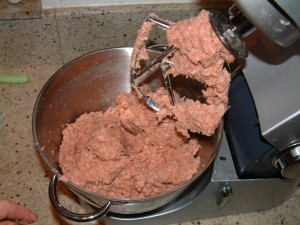
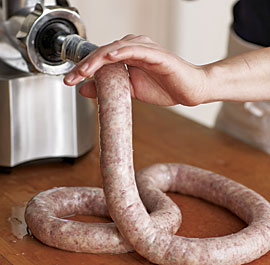
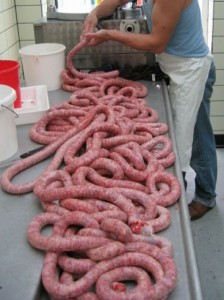
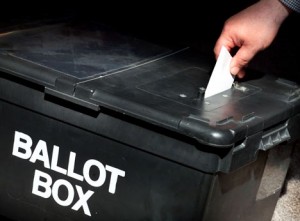
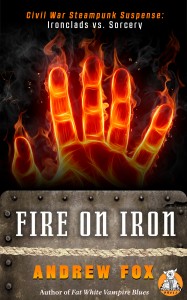
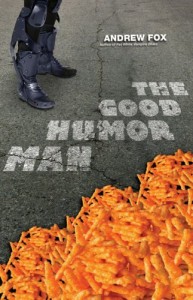
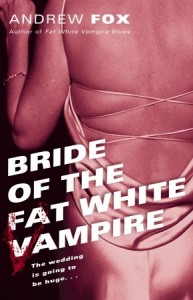
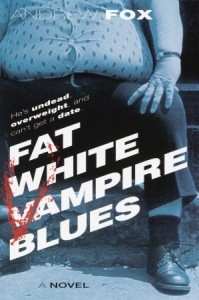
Good article, honey. I put it on Facebook and Twitter.
Disturbing
[…] Of the many complaints about the election in Prince William, one report really stood out. Dara Fox, a Republican poll watcher certified by the Virginia Board of Elections, and trained in the use of Romney’s ORCA application, reported at least 100 instances of voting irregularities, where the voter should have either been challenged or provided with a provisional vote. These included: […]
[…] Of the many complaints about the election in Prince William, one report really stood out. Dara Fox, a Republican poll watcher certified by the Virginia Board of Elections, and trained in the use of Romney’s ORCA application, reported at least 100 instances of voting irregularities, where the voter should have either been challenged or provided with a provisional vote. These included: […]
[…] Of the many complaints about the election in Prince William, one report really stood out. Dara Fox, a Republican poll watcher certified by the Virginia Board of Elections, and trained in the use of Romney’s ORCA application, reported at least 100 instances of voting irregularities, where the voter should have either been challenged or provided with a provisional vote. These included: […]
[…] Of the many complaints about the election in Prince William, one report really stood out. Dara Fox, a Republican poll watcher certified by the Virginia Board of Elections, and trained in the use of Romney’s ORCA application, reported at least 100 instances of voting irregularities, where the voter should have either been challenged or provided with a provisional vote. These included: […]
[…] Of the many complaints about the election in Prince William, one report really stood out. Dara Fox, a Republican poll watcher certified by the Virginia Board of Elections, and trained in the use of Romney’s ORCA application, reported at least 100 instances of voting irregularities, where the voter should have either been challenged or provided with a provisional vote. These included: […]
[…] the social and political progress of this country” — referring, in this case, to policing voter […]
Just saw reports of massive voter fraud in North Carolina and wondered what came of Dara’s report. Was there an investigation? Or was she just brushed off as a kook? Please give us an update on what occurred after she went public with her observations. Thanks!
Libby, thanks so much for reading that post and for writing me. Dara worked with one of her state representatives who has championed a voter ID bill for several years. This past session, perhaps due in part to Dara’s first-hand reports, the state rep was able to push the bill through the Virginia State Legislature and the bill became law when our (then) Republican governor signed it.
[…] close with a quote and an article I’ll link to here. I believe they are both helpful in clarifying the general […]